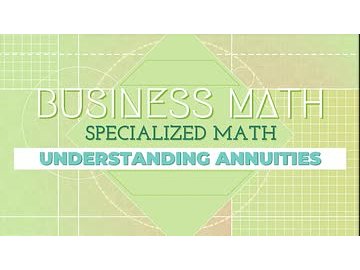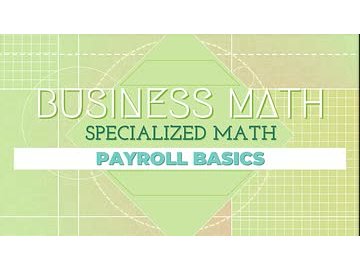Filter by
Sort
Sub-category
Training Bundles
- Artificial Intelligence
- California HR Essentials
- Cybersecurity Essentials
- Digital Transformation
- Diversity, Equity & Inclusion
- DOT/CDL
- Drug and Alcohol Compliance
- Financial Compliance
- First Aid
- Food Safety
- HIPAA Compliance
- HR Essentials
- Leadership
- Mental Health & Wellbeing
- OSHA / Construction Safety
- Personal Development
- Project Management
- Retail
- Workplace Harassment
- Workplace Safety
State
Language
Tags
Price
Duration
Audience
Online Professional Development Accounting Courses Courses
Courses

Professional Development
Bookkeeping Using Google Sheets

Professional Development
Financial Accounting - Part 2

Professional Development
Financial Accounting - Part 1

Professional Development
Unveiling the Profit and Loss Account Understanding Financial Performance Course

Professional Development
Demystifying Double Entry Bookkeeping Course

Professional Development
Decoding Balance Sheets Course

Professional Development
Microsoft Excel in 30 Minutes Course

Professional Development
Specialized Math: Understanding Annuities

Professional Development
Specialized Math: Payroll Basics

Professional Development
The Price-Earnings Ratio Unveiled Course

Professional Development
Net Present Value Simplified Course

Professional Development
Mastering Credit Management Course

Professional Development
Introduction to the Financial Conduct Rules Course

Professional Development
Crafting a Comprehensive Balance Sheet Navigating Assets, Liabilities, and Equity Course

Professional Development
Banking and Financial Risks Course

Professional Development
Treating Customers Fairly - Finance Course

Professional Development
Preparing a Media Proposal Workbook Course

Professional Development
Preparing a Media Proposal Course

Professional Development
Financial Management and Budgeting Course

Professional Development
Delivering a Media Pitch Course

Professional Development
Credit Brokerage Accreditation Course

Professional Development
Coaching Skills for Managers: Closing the Relationship Course
About the Accounting Course
When I think back to my first job in a finance office, I can still feel the nerves I had every time someone asked me to prepare a report. The formulas, the spreadsheets, the endless rows of numbers—it felt overwhelming. What turned things around wasn’t luck. It was a structured Accounting Course that gave me both the confidence and the skills to handle real work situations. That experience is why I believe training is more than just an academic exercise. For people building a career in finance or business, training is the bridge between frustration and clarity, between guessing and knowing.
Understanding the Core Issues in the Accounting Course
Accounting Course isn’t just about passing an exam. It’s about solving everyday problems. Picture a manager waiting for a financial report that’s late because an employee isn’t sure how to record entries. Or a business owner paying unnecessary penalties because payroll wasn’t filed correctly. Training takes these pain points and addresses them directly by showing participants the “why” behind each task. Once learners understand the logic, confidence replaces anxiety.
Legal & Industry Framework
The truth is, accounting lives in a world full of rules. Governments want accurate tax filings. Banks want clean financial statements. Regulators expect compliance with standards like GAAP or IFRS. A missed requirement can lead to fines or worse. Accounting Course teaches how to work within these boundaries while avoiding mistakes that could damage both careers and reputations. It’s like learning to drive safely—you might be able to move a car without training, but proper instruction prevents accidents.
Employer Responsibilities
Good companies don’t just hire talent; they invest in it. Employers who provide Accounting Course give their teams tools to handle reporting, audits, and financial planning with accuracy. This not only prevents costly errors but also builds a culture of trust. When staff members feel supported with proper training, they perform with confidence. It’s the difference between guessing through QuickBooks entries and knowing exactly how to get it right.
Individual Responsibilities
On the other side of the equation, employees and students have their own role to play. Training only works if participants practice what they learn. That means showing up, engaging with examples, and applying knowledge to daily tasks. The best accounting professionals are those who take lessons from the classroom and immediately test them in the workplace—whether that’s balancing payroll, preparing budgets, or filing year-end reports.
Case Studies and Scenarios
A young graduate I once spoke with was stuck in retail, frustrated that her résumé wasn’t getting her finance job offers. She enrolled in an Accounting Course program that focused on practical bookkeeping and Excel. Within months, she landed her first bookkeeping role and finally felt like she was on the right path. Compare that to a small local business that skipped training altogether. Their staff, unfamiliar with tax filing rules, made errors that resulted in heavy fines. That business ended up spending more on penalties than the cost of training would have been. Real lives and livelihoods change based on whether or not proper training is prioritized.
Preventive Measures and Best Practices
Training works best when it’s ongoing. Setting aside a little time each week to refresh skills keeps information sharp. Employers can encourage this by offering short refresher courses or interactive online lessons. Individuals can reinforce learning with practice problems, software tutorials, and even mentorship sessions. The goal isn’t to memorize rules but to build habits that make accurate accounting second nature.
Compliance, Certification & ROI
For many learners, certifications like CPA, CMA, or ACCA are more than letters after a name. They’re proof of credibility and professionalism. Employers see certified staff as less risky, and clients trust them more. From a business standpoint, having certified, well-trained employees reduces mistakes that could cost thousands. From a personal standpoint, training often leads to better salaries and stronger career opportunities. The return on investment becomes clear when a promotion or new role pays back the cost of training many times over.
Conclusion
Accounting Course is about more than numbers—it’s about building a future that feels stable and rewarding. For the busy professional balancing work, family, and ambition, training offers a clear path forward. It provides confidence where there was once doubt and opportunity where there was once uncertainty. If you’ve ever worried about falling behind or questioned whether you’re ready for the next step, the right training could be exactly what helps you move forward with confidence.
Accounting Courses FAQs
Why is the Accounting Course important for businesses?
The Accounting Course is important for businesses because accurate numbers drive smart decisions. Training ensures staff can prepare reliable reports, file taxes correctly, and avoid costly errors. It protects the company’s reputation, strengthens compliance, and keeps financial operations running smoothly.
How often should the Accounting Course be updated?
The Accounting Course should be updated at least once a year. Tax codes, financial laws, and software tools change frequently, and regular training keeps professionals sharp. Even short refreshers can prevent errors that waste time and money.
Are online Accounting Course programs effective?
Online Accounting Courses can be just as effective as in-person classes when they include interactive lessons, live instructor support, and practical exercises. Online learning also provides flexibility, allowing professionals to develop skills without stepping away from work or family responsibilities.
What happens if the Accounting Course is ignored?
If the Accounting Course is ignored, financial mistakes are far more likely. Errors in tax filings, payroll, or financial reporting can result in penalties, lost revenue, and reputational damage for businesses. For employees, skipped training can also mean slower career growth and fewer advancement opportunities.
How can organizations measure the success of an Accounting Course?
Organizations can measure the success of an Accounting Course by tracking improvements in reporting accuracy, compliance rates, and certification results. Employee confidence and efficiency are also strong indicators. Many companies calculate ROI by comparing training costs to the money saved from avoiding financial errors.


